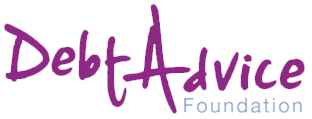Who pays the IVA fees?
IVA fees are based on a standard fee structure that everyone in the industry must adhere to.
They are paid out of the money that you contribute into the IVA each month. Essentially, your creditors are agreeing to accept less money back in order to pay your IP (this is why there’s no such thing as a cheaper or better IVA; even if your IP charged lower fees, the difference would go to your creditors, not to you).
In principle, IVA fees are relatively straightforward, although it gets a little more complicated if you own assets such as a property. In the following example, we’re going to assume that you don’t own a home or any other assets to make things easier.
Your Insolvency Practitioner (IP) calculates how much money you have coming in to the household and how much you need each month to cover essential living costs and priority debt arrears (things that must be paid first such as Council Tax). At this stage, they ignore your unsecured credit commitments (personal loans, credit cards etc) as these are the debts that the IVA will tackle.
If we assume you bring home £2,000 per month in wages and you need £1,750 for living costs (food, travel to work, clothes etc), it means you have £250 available each month to offer to your unsecured creditors. It doesn’t matter how much your contracted unsecured monthly debt repayments are, this is the amount your IP has calculated you can afford to repay and assuming your creditors agree to your proposal, this is the only amount you’ll ever be asked to pay.
If you owed £25,000, you’d be discharged from your liabilities after 5 years (60 months), having repaid only £15,000 (60 months x £250).
Here’s the tricky bit; so what did you actually pay in fees?
Very broadly (not accounting for VAT), the first 5 payments you make go to your IP for setting up your IVA. After that the IP will get 15% of your monthly repayments and your creditors will get 85%. So in this example, your IP will have received £3,312.50 and your creditors will have received £11,687.5, which added together comes to the £15,000 total repayment we calculated above. This means that your creditors will receive around 80% of the total amount you pay into your IVA with your IP receiving the other 20%.
Because you’ve paid back £10,000 less than your original debt, some people argue that there is no fee involved (how can you have a negative fee?). Even though it is likely that you’ll significantly reduce the amount that you’ll pay back in an IVA, it should still be explained to you how the IP will get paid for two important reasons:
- If your IVA fails, you’ll be back to square one having paid fees (at that point, the only option realistically available to you will be bankruptcy).
- If your circumstances change during the IVA and you are able to repay your debt in full (for example winning the lottery, receiving PPI compensation or seeing the equity in your home appreciate sharply), then you will be liable for paying the fees in addition to the debt.
As mentioned above, having assets (such as a property), adds an extra layer of complication. If you do own your own home, you will be asked to remortgage (usually six months before the conclusion of the IVA) and release any available equity. You will only be asked to do this if you have more than 15% equity in your property (banks have traditionally not lent money in excess of 85% of the property’s value), if the amount being released was above a de minimis value (i.e. your IP usually wouldn’t expect you to remortgage to release less than £5,000) and if your IP believes you can afford the repayments (see IVA Remortgage).
For example, if your home is worth £100,000 and your outstanding mortgage is £75,000, you would be asked to remortgage up to £85,000, of which £10,000 less arrangement fees would go to your creditors. This would still leave you with £15,000 equity and most importantly, you’d still own your home, which is a big advantage of IVAs over bankruptcy.
Whilst IVAs can be a life-line for many with large, unaffordable debts, it’s worth remembering that they are not for everyone. That’s why it’s so important that you seek impartial advice before entering any agreements.
There is a more detailed explanation of how fees work here.
You can read more about IVAs and whether they are suitable for your situation in our IVA section.
Debt Advice Foundation is a registered UK charity offering free, confidential support and advice on any aspect of debt, including IVAs. If you need to talk to someone about debt, please call the charity’s helpline on 0800 043 40 50 to speak to an adviser.




